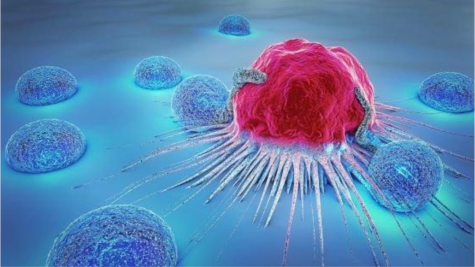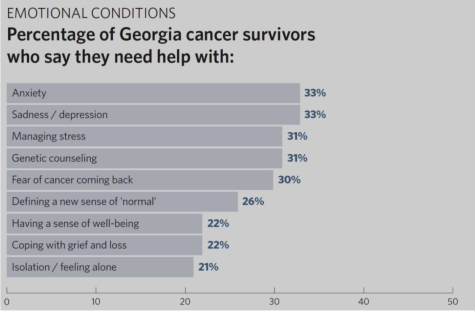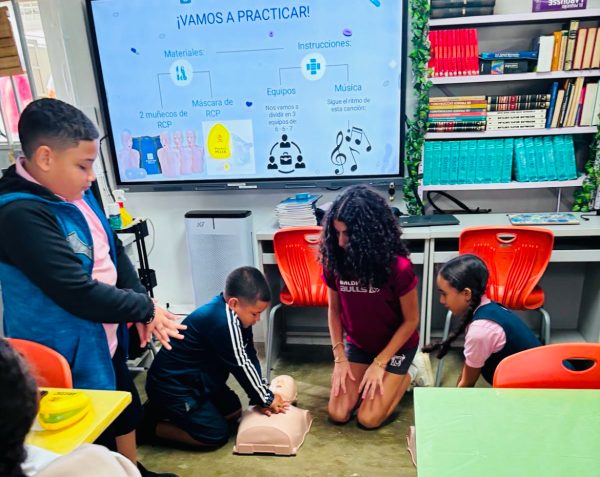Battling Cancer: The Science and Psychology Behind this Disease
Cancer is something that changes people’s lives; it brings loss or a new way of life. The American Cancer Society stated that in 2021, there were to be an estimated 1.9 million new cancer cases diagnosed and 608,570 cancer deaths in the United States. On the other hand, The World Health Organization talks about how roughly 10 million fatalities, or nearly one in six deaths, were caused by cancer in 2020, making it the top cause of death globally. Breast, lung, colon, rectum, and prostate cancers are the most prevalent types of cancer. With cancer being so common, it is important to understand what it is, its mental effects, and, most importantly, how to avoid cancer or catch it on time.
Firstly, cancer treatment is the use of surgery, radiation, medications, and other therapies to cure, shrink, or stop its progression, as stated by Mayo Clinic. Cancer treatments can be as primary (completely removing cancer cells from your body), adjuvant (to kill any cancer cells that may remain after primary treatment), or palliative (to relieve side effects from cancer itself). Oncology doctors have made incredible advances in their field with progressive treatments such as chemotherapy, photodynamic therapy, radiation therapy, and many more. The image below shows what an average cancer cell (red) looks like versus normal cells (blue). Normal cells stop growing and dividing when they stop producing growth factors, when they have reached their limit, or grown to their maximum (Schnur, 2019). They also have a normal and consistent shape and size. On the contrary, cancer cells may produce growth factors that stimulate reproduction and are less dependent on growth factors from other sources, they are abnormal in size and shape, and their nucleus may appear darker due to the increased number of DNA strands (Schnur, 2019).

Cancer slowly takes over the body, but what happens to the mind of a patient or survivor? Natalia Villarejo, a cervical cancer patient and survivor, said that “many doctors ignore the importance of mental health during this life-changing process.” Even though this journey was hard for her, she said it taught her many lessons about herself, and what to prioritize in her life; realizing and accepting that she needed to find mental help on her own. The Mental Health Foundation states that “people with cancer are at increased risk of developing mental health problems such as depression and anxiety. Research in 2014 uncovered that 3/4 of cancer patients with clinical depression do not receive the support and treatment they need in Scotland” (Knifton, 2017). The graph below shows the percentage of cancer survivors from Georgia who say they need some sort of mental help for many reasons. Mental health is essential to a person’s well-being, and it cannot be neglected by any medical professional.

Finally, the best thing to do is get regular checkups to prevent or catch cancer early. The National Council on Aging claims that cancer screenings can aid in the early detection of the disease when a cure is more possible. Most people don’t show any signs or symptoms of cancer until the disease has advanced, when it may be more challenging to treat. Thus, regular cancer tests are not only crucial but also potentially life-saving. Continuity and avoiding ignorance are key to the prevention or possible cure of cancer.
All in all, it is extremely important to spread awareness about what cancer is, how it affects most patients’ mental state, and how to avoid or treat it on time. Being active, spending quality time with loved ones, and doing enjoyable things can help pre or post-cancer patients dramatically. Wendy Passer, a cancer survivor who speaks on the disease and spreads awareness, once said: “We all know what that isolation of a cancer diagnosis feels like. Hearing other people’s stories and the dimensions that happen on their paths can make you feel less alone and remain positive.”
Bibliography
Admin. (2023, January 12). Hopeful quotes. Rogel Cancer Center | University of Michigan. Retrieved January 30, 2023, from https://www.rogelcancercenter.org/living-with-cancer/sharing-hope/hopeful-quotes
Authors, W. H. O. (2022, February 3). Cancer. World Health Organization. Retrieved January 28, 2023, from https://www.who.int/news-room/fact-sheets/detail/cancer#:~:text=Cancer%20is%20a%20l eading%20cause,and%20rectum%20and%20prostate%20cancers
Hoyos, J. (2022, July 12). The Importance of Getting Screened for Cancer as You Age. The National Council on Aging. Retrieved January 30, 2023, from https://ncoa.org/article/the-importance-of-getting-screened-for-cancer-as-you-age#:~:text=Cancer%20screenings%20can%20help%20detect%20cancer%20early%20when%20treatm ent%20is,important%20but%20can%20be%20lifesaving.
Knifton, L. (2017). Cancer and mental health. Mental Health Foundation. Retrieved January 30, 2023, from https://www.mentalhealth.org.uk/our-work/research/cancer-and-mental-health#:~:tex=People%20with%20cancer%20are%20at,treatment%20they%20need%20in%20Scotland.
Mayo Clinic Staff. (2022, May 25). Cancer treatment. Mayo Clinic. Retrieved January 28, 2023, from http://www.mayoclinic.org/tests-procedures/cancer-treatment/about/pac-20393344.
Myrna Buiser Schnur, MSN, RN. (2019, July 15). How are cancer cells different from normal cells? Cancer Cells Versus Normal Cells | Lippincott NursingCenter. Retrieved January 28, 2023, from https://www.nursingcenter.com/ncblog/july-2019/cancer-cells-vs-normal-cells
Unknown. (2021). Cancer facts & figures 2021. American Cancer Society. Retrieved January 28, 2023, from https://www.cancer.org/research/cancer-facts-statistics/all-cancer-facts-figures/cancer-facts-figures-2021.html#:~:text=Estimated%20numbers%20of%20new%20cancer,deaths%20in %20the%20United%20States.
Your donation will support the student journalists of The Baldwin School of Puerto Rico. Your contribution will allow us to purchase equipment and cover our annual website hosting costs.





